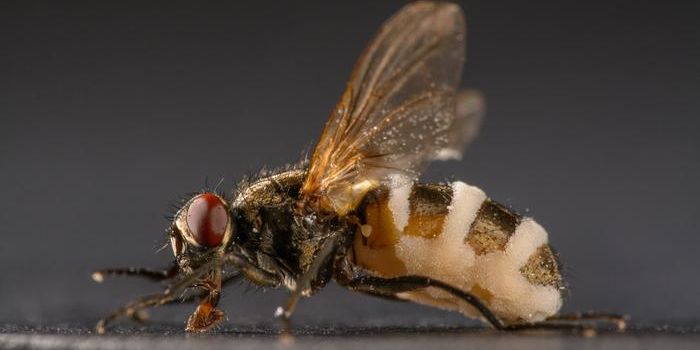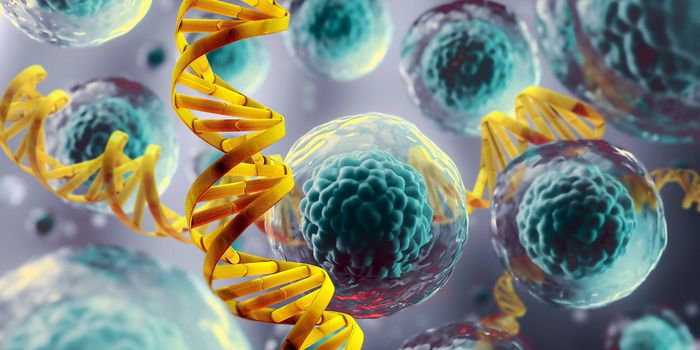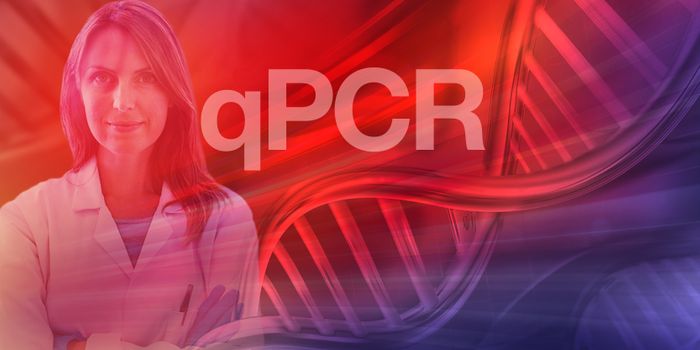Mitochondrial DNA May be Affecting More Traits Than we Knew
While the vast majority of our genes are in the genome that's held in the nuclei of cells, the nuclear genome, mitochondria are also known to carry their own DNA and even express their own genes as proteins. Dysfunction in the mitochondrial genome is known to cause several serious diseases. But now researchers have linked mitochondrial dysfunction to other disorders including type 2 diabetes and multiple sclerosis (MS). This research, which was reported in Nature Genetics, was done using genetic information from about 358,000 people in the UK Biobank.
Mitochondrial DNA is passed down almost exclusively from mother to child, and this genetic material makes up only about 0.1 percent of the human genome. But this study has indicated that small changes in the sequence of mitochondrial DNA may affect human biology in many ways, such as by raising the risk of complex disorders, and influencing height or lifespan. This study has suggested that mitochondrial DNA may also be interacting with nuclear DNA.
This new research might change how we think of the human genome and has been made possible by a new tool for analyzing mitochondrial DNA.
"Using this new method, we've been able to look for associations between the numerous features that have been recorded for participants of [the] UK Biobank and see whether any correlate with mitochondrial DNA," said study co-author Dr. Joanna Howson, who carried out the work while at the Department of Public Health and Primary Care at the University of Cambridge.
"Aside from mitochondrial diseases, we don't generally associate mitochondrial DNA variants with common diseases. But what we've shown is that mitochondrial DNA, which we inherit from our mother, influences the risk of some diseases such as type 2 diabetes and MS as well as a number of common characteristics."
This research suggested that besides MS and type 2 diabetes, variants in mitochondrial DNA may influence lifespan, height, liver and kidney function, and blood counts. People that also have rare mitochondrial diseases might feel these impacts more acutely, while in otherwise healthy individuals, these mitochondrial genetic variants may have only a small effect.
We don't yet know exactly how mitochondrial DNA affects physiology, but there are several suggestions. Since mitochondria are critical for generating energy for cells, these changes may involve energy production, or they may have far more subtle impacts on cellular biochemistry. The researchers suggested that to solve the puzzle of many disorders, the mitochondria, and its DNA will have to be taken into account.
"If you want a complete picture of common diseases, then clearly you're going to need to factor in the influence of mitochondrial DNA. The ultimate aim of studies of our DNA is to understand the mechanisms that underlie these diseases and find new ways to treat them. Our work could help identify potential new drug targets," said Professor Patrick Chinnery from the MRC Mitochondrial Biology Unit at Cambridge.
Since some populations are more likely to have certain mitochondrial genetic backgrounds, there may be a connection between the two genomes and how they've evolved. Future work will have to investigate this connection further.
Sources: AAAS/Eurekalert! via University of Cambridge, Nature Genetics









